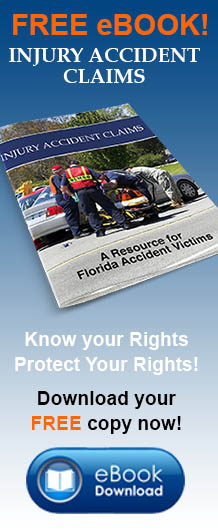After 20 years of representing victims in auto accident personal injury claims, we’ve learned a great deal about what insurance companies will do to deny coverage. Being involved in a car accident is one of the scariest things that you can go through. Given that more than 6 million Americans are involved in car accidents each year, it’s entirely possible that you will face this situation at some point. If and when you do, it pays to know how to proceed in order to protect your rights and best interests.
To make things easier, here’s a convenient list of dos and don’ts to follow after being involved in a car accident.
Do:
- Seek medical attention immediately – Even if you think you’re okay, it’s crucial to make sure. Also, this creates a record that you can use when filing your lawsuit.
- Call your insurance agent and an attorney – After being checked out by a doctor, contact your insurance agent and inform them of the situation. Contact a qualified personal injury attorney at your earliest convenience too.
- Document the evidence – If possible, take photos of damages to your car, your injuries and the general accident scene right away.
- Gather contact information – Collect contact information and insurance information from all involved parties.
- Review and understand your car insurance coverage – As soon as you can, thoroughly review your auto insurance information. What is covered? What isn’t? What kinds of limits are in place?
- Save receipts – Hang onto receipts for any expenses that you incur as a result of the accident, including steps that you must take to investigate and handle the matter.
- Keep records of all communications with third parties – Any time you speak to the insurance company, law enforcement or anyone else, keep a record of everything that was said.
- Keep records of missed work and other losses – Finally, document the ways in which the accident affected you by keeping records of how many days of work you missed and of other direct issues that arose due to the accident.
Don’t:
- Volunteer information – When dealing with the police, the insurance company and other parties that were involved in the accident, never volunteer information. Strictly answer questions that are posed to you as factually and directly as possible, and never speculate.
- Admit liability – Even if you are certain that you are to blame for the accident, keep your lips sealed. Many factors affect liability, and you could inadvertently jeopardize your odds of receiving a fair, full settlement by making such statements.
- Assume the insurance company’s estimate is correct – Chances are that the insurance company will approach you fairly early on with an estimate of the settlement that you may receive. Don’t assume that it is correct. Have a skilled lawyer assist you instead.
- Put anything in writing – Don’t provide any information in writing to the insurance company, as it may come back to haunt you later.
- Accept full or final payment before consulting with a personal injury attorney – You will likely be offered a payment that will be described as “full and final,” which means that you can no longer pursue additional damages. Never accept this payment without consulting with an attorney.
- Sign a release or waiver of any kind – You may be pressured into signing a waiver or release of some kind. Even if it seems innocuous, don’t sign it without running it by an experienced personal injury lawyer first.
The biggest “do” of all when it comes to handling auto accidents and personal injury claims is to retain an experienced and competent personal injury lawyer at your earliest convenience. With an attorney by your side, you can rest assured that your rights are being protected throughout the entire process. Call David & Philpot, P.L. today for a free, no obligation consultation about your case.
For additional help and resources, see our page on Resources for Florida Car Accident Victims




Comments are closed.